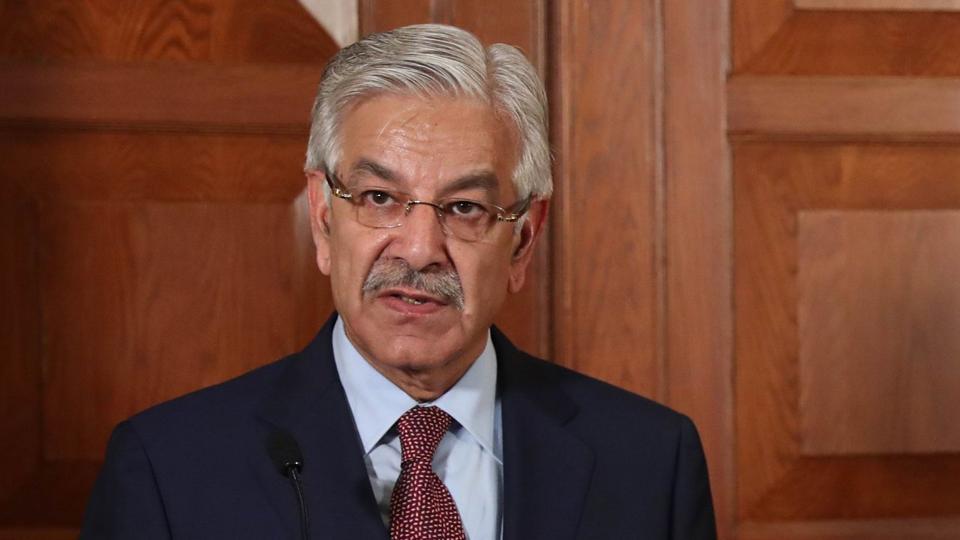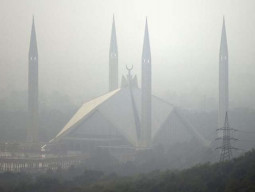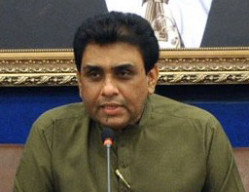
“If the US has its concerns about the future of Afghanistan, Pakistan, too, seeks recognition of its legitimate security concerns in the region,” the minister said in his interaction with the US and foreign media at the Pakistan embassy in Washington late Thursday night.
Asif to US: Don’t treat us as ‘whipping boy’
Asif was making his first visit to Washington since President Donald Trump laid out his strategy for ending the 16-year war in Afghanistan.
The US has long accused Islamabad of harbouring the Afghan Taliban, and Trump has demanded that Pakistan eliminate militant sanctuaries, allegations that Islamabad vehemently contested.
“We are genuinely concerned with regard to the role accorded in the strategy to India in general and its efforts, geared to destabilisation in Balochistan, in particular,” the foreign minister added.
On the peace process in Afghanistan and Pakistan’s role in pressuring the Afghan Taliban into talks with President Ashraf Ghani’s government, Asif said “our influence over the Taliban has diminished since a US drone strike killed the militant group’s leader last year”, derailing talks aimed at bringing peace to Afghanistan.
He said Pakistan wants peace in the neighbouring country, and still has some influence over the militant group, “but it’s not as much as it used to be”.
Asif, who met with US National Security Adviser HR McMaster and Secretary of State Rex Tillerson, said Pakistan was willing to cooperate fully with the Trump administration, but he had some pointed words for Washington.
He insisted Pakistan has wiped out militant hideouts on its soil with little help from the US, which has restricted military assistance to Pakistan, and it can’t be blamed for the violence in Afghanistan.
“Don't just blame Pakistan,” Asif told journalists. “We are not saying that we are saints. Perhaps in the past we made some mistakes. But since the last three, four years we are whole-heartedly, single-mindedly ... targeting these terrorists.”
Trump’s Afghan plan: US agrees to assuage Pakistan’s concerns
Asif objected to the possibility of renewed US drone strikes on Pakistan. He challenged the United States to provide coordinates of the locations of terrorists, vowing: “We will bomb them.”
He cited Pakistan’s military operations clearing North Waziristan, long believed to be a haven for the Haqqani network.
The foreign minister said his meeting with Secretary Tillerson was an important interaction, adding after the announcement of the South Asia Strategy, the bilateral relationship between the two countries has taken a new turn.
“However,” he added, “Pakistan believes that unless there is stability in Afghanistan, the dividends of peace in the region will continue to elude us.”
To achieve that goal both the US and Pakistan need to work closely, he stressed.
“We have offered candid cooperation to Afghanistan during the recent visit of the army chief and foreign secretary to Kabul where they had successful and productive meetings with President Ashraf Ghani, CEO Abdullah and others in the Afghan hierarchy,” he said.
“Pakistan is extremely concerned about safe havens of terrorists, who are mostly operating from ungoverned spaces in Afghanistan which are more than 40% of the total area of the country,” he added.
Substantiating his plea, Asif said a number of terrorist attacks in Pakistan in recent months have been traced back to those elements operating from those bases in Afghanistan.
“In our renewed efforts towards establishing regional peace, we hope that the international media, US in particular, will play a positive role and reflect Pakistan’s changing realities in its reporting.”
He also invited media luminaries gathered there to visit Pakistan with a view to acquiring a first-hand experience of the fast changing reality in the country.
Watch the video here:


1725443747-0/Untitled-design-(5)1725443747-0-165x106.webp)














COMMENTS
Comments are moderated and generally will be posted if they are on-topic and not abusive.
For more information, please see our Comments FAQ